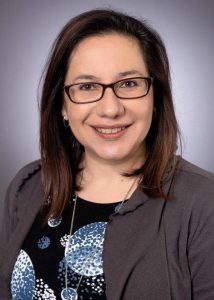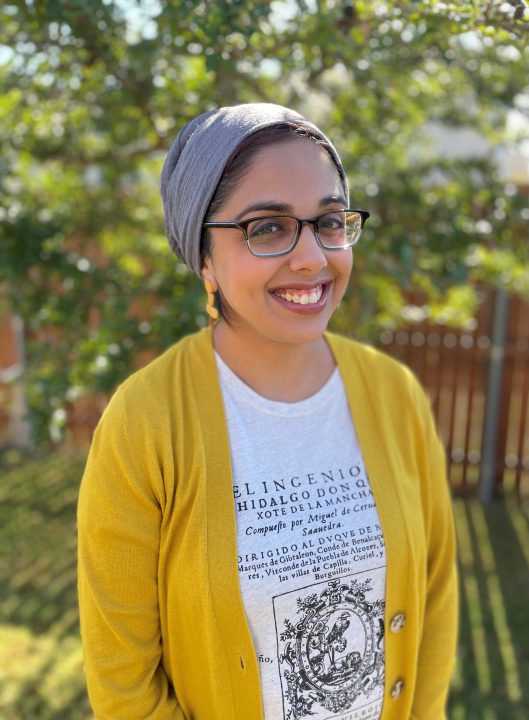When TCC Northwest, along with the rest of the College, moved its courses online in mid-spring, many instructors found themselves in trial-by-fire scenarios, rapidly applying new technology and learning modalities to courses designed to run in-person. As most summer and fall courses continued in an online format, TCC Northwest faculty found ways to engage their students in new ways.

Associate professor of life sciences Kathleen Galindo used her experience with the Active Learning Academy to inform new methods of interacting with students online. Her courses are held live via Microsoft Teams, and students interact with one another by asking questions and working collaboratively on activities.
To create community in the classroom, Galindo starts every class session with memes, drawings or other icebreakers to get students talking to one another. Students complete virtual labs or at-home activities and work together online. In one activity, for example, students used a virtual whiteboard to identify events that increase or decrease total blood flow.
“You know, I didn’t know how this was going to play out, virtually,” she told the class at the end of the activity, explaining how the in-person version of the activity was different, but how both versions resulted in the same type of learning. “You all were thinking through it, and you got there. It’s beautiful.”
Assistant professor of English Cindy Allen created engagement through hidden activities in her Composition and Integrated Reading and Writing courses. She embeds “Easter eggs” in the form of hidden links. If a student finds one, the link takes them to Flipgrid to complete an activity in exchange for points. The links are embedded in regular course content, and all are connected to course skills. For one activity, she linked a short Twitter thread demonstrating narrative, and students responded using language learned in the lesson. Student engagement in these activities can be as high as 90 percent.
Still, being physically away from the classroom is a challenge, for both students and professors. Engagement can help alleviate that, even in small ways.
“I remember [John Green’s novel] The Fault in Our Stars and the line about love being a shout into the void,” Allen said. “That’s sometimes what I feel like. I’m here, typing and posting and recording, and I don’t know who is on the other side. I don’t know who, if anyone, is reading, watching, comprehending. Then work comes in and I am so happy that the shouting got through.”
Challenges abound in co-curricular work as well. English instructor Zainah Usman and assistant professor of English LeeAnn Olivier planned a learning community this fall, allowing students to work on the campus literary magazine, Marine Creek Reflections, while earning credit in both English and Humanities courses.
The switch to a virtual format has been difficult for courses designed to have split instructional days, especially for a course that has traditionally relied upon hands-on publishing skills.
“LeeAnn and I have lamented the loss of the Learning Community classroom experience, especially one where we could do layout and design work on actual paper, or at least with groups of students,” Usman said. “The initial weeks of promoting the journal were also tough, because we couldn’t pop into classrooms to talk, and our students couldn’t canvass the hallways or set up tables with flyers in common areas like we have done in years past. Our students have learned how hard it actually is to ‘spread the word’ when your whole world is virtual.”
The key has been adaptability, for both students and instructors. Usman said the team has relied on collaborative technology like Flipgrid, Remind and Google Docs.
Extracurricular events have also required adaptation. Fall 2020 marked the kickoff for the TCC Northwest Common Reader program. The committee selected The Book of Unknown Americans by Cristina Henríquez. In lieu of on-campus events, instructors found new ways to engage students with the material, including an essay contest dubbed “Immigration Journeys: Let Us All Be From Somewhere.” Student winners of the contest were invited to speak at an Oct. 29 virtual roundtable discussion alongside assistant professor of Spanish Mayra Fuentes, instructor of Spanish Jesús González and instructor of biology Daiju Hoshino. Their work was also submitted to Marine Creek Reflections to be considered for publication.
As instructors prepare for another mostly online semester in Spring 2021, they acknowledge the struggle of a virtual classroom but have committed to finding creative ways to overcome obstacles.
“We have found that our students have been really understanding and respond to honesty,” Usman said. “Acknowledge challenges, but don’t feel like you need to fix everything right away or have all the answers.”

